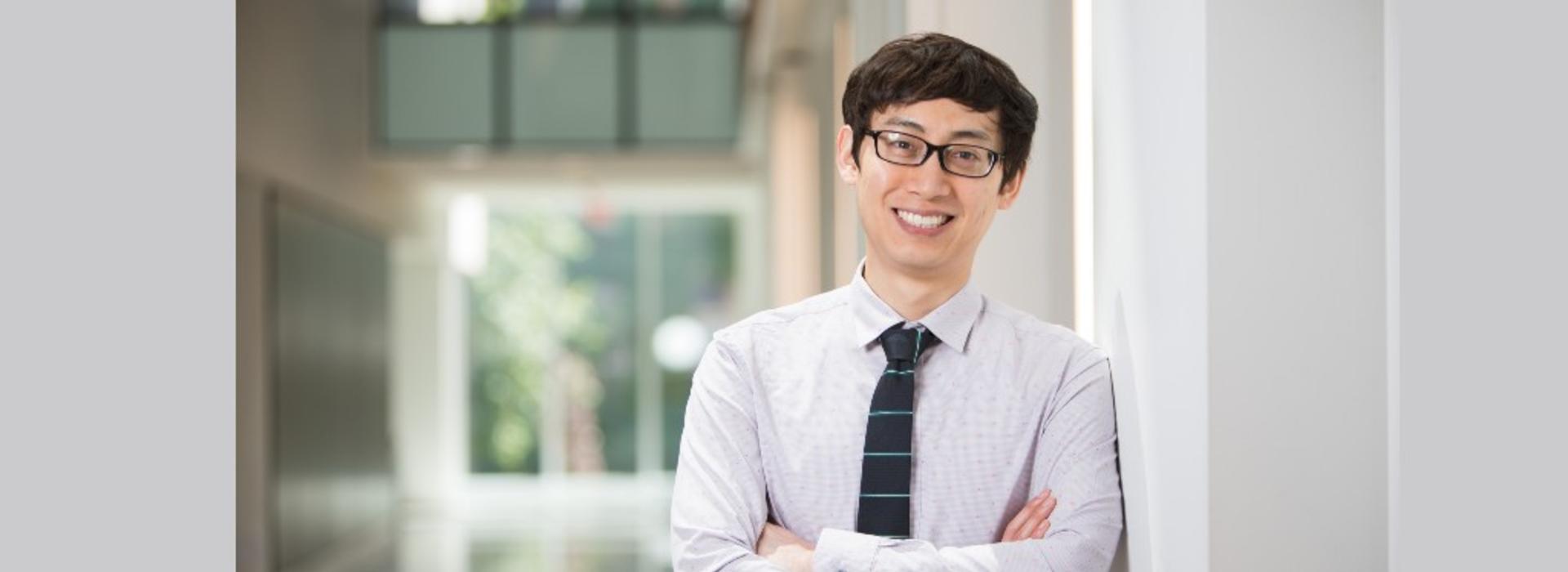
Talking eye donation with U of M
MINNEAPOLIS/ST. PAUL (11/08/2023) — Across the U.S., more than 100,000 people are in need of eye, organ or tissue donations. Eye donors can help those in need regain their vision and transform their lives.
For Eye Donation Month in November, Dr. Joshua Hou with the University of Minnesota Medical School and M Health Fairview talks about the process of eye donation and the role of eye banks in restoring vision and providing the gift of sight.
Q: What is eye donation, and what role do eye banks play?
Dr. Hou: Eye banks like Lions Gift of Sight play three critical roles in the fight against blindness. First, eye banks help provide high quality donor tissue for safe and effective corneal transplantation to treat blinding diseases of the cornea. They also provide research tissue to laboratories around the globe to help find cures for blinding diseases such as macular degeneration, glaucoma and diabetic retinopathy. Lastly, eye banks provide training tissue to help the next generation of eye surgeons learn intraocular surgery.
Q: How do recipients benefit from eye donations?
Dr. Hou: Recipients who undergo corneal transplantation receive the most direct benefit of eye donation, which is the restoration of their personal sight. These patients can go from being completely disabled and unable to perform activities in daily life, like feeding themselves, to having functional sight and independent lives after surgery. Without eye donation, corneal transplantation would not be possible and these people would be relegated to blindness forever.
Q: What are some common misconceptions about eye donation?
Dr. Hou: One of the most common misconceptions about eye donation is the belief that previously having eye surgery makes you ineligible for donation. In fact, we frequently transplant corneas from donors who have had cataract surgery, LASIK surgery, glaucoma surgery and intravitreal injections for macular degeneration. Similarly, there is a misconception that if a person needs to wear glasses, their eyes are not good for donation. In actuality, near-sightedness and far-sightedness don’t affect the quality of the cornea. Your cornea could also be useful for research into those specific diseases.
Another common misconception is that corneas aren't worth donating if they’re not eligible for transplantation. Research tissue that helps develop cures for blindness may actually have a greater impact on the global population and future generations than transplant corneas that go to a single recipient.
Q: Who can be a donor? How can I sign up?
Dr. Hou: Anyone can be a donor, but many eye banks set an age limit for transplant corneas. Lions Gift of Sight will take donors from 5 years of age to 80 years of age for transplantation. Donors over 5 years of age are eligible for research. People can register to be a donor when they renew their driver’s license or provide a written or verbal advanced directive to their next of kin. By indicating this desire ahead of time, loved ones know exactly how to move forward and honor last wishes.
Q: How does your research at the University support your clinical work?
Dr. Hou: Research at the University of Minnesota is critical in finding new cures for blinding diseases. For corneas, we are constantly trying to find new ways to optimize corneal transplantation by minimizing the risk of rejection, improving the visual outcomes and simplifying the surgery to reduce the risk of complications. This allows us to provide the best care for our patients. We are also actively working on the development of cell therapies using stem cells and cultured donor cells to treat patients with blindness where there currently is no cure. Outside of cornea, there are many conditions which we currently have no cure for. The three most common causes of blindness in the U.S. are macular degeneration, glaucoma and diabetes. Currently, there is no treatment to reverse vision loss in these diseases—only therapies to prevent or halt progression. Only through research programs, like those supported by the University, is there hope that our patients with advanced diseases can recover their vision.
Dr. Joshua Hou is an associate professor at the U of M Medical School and ophthalmologist at M Health Fairview. Dr. Hou is also the medical director of Lions Gift of Sight, part of the Department of Ophthalmology and Visual Neurosciences. Dr. Hou currently serves as the Cornea Fellowship Director at the University of Minnesota and maintains a busy tertiary referral practice specializing in complex corneal transplantation and severe ocular surface disease. Dr. Hou’s research interests include eye banking, tissue processing and limbal stem cell deficiency.
-30-
About the University of Minnesota Medical School
The University of Minnesota Medical School is at the forefront of learning and discovery, transforming medical care and educating the next generation of physicians. Our graduates and faculty produce high-impact biomedical research and advance the practice of medicine. We acknowledge that the U of M Medical School, both the Twin Cities campus and Duluth campus, is located on traditional, ancestral and contemporary lands of the Dakota and the Ojibwe, and scores of other Indigenous people, and we affirm our commitment to tribal communities and their sovereignty as we seek to improve and strengthen our relations with tribal nations. Learn more at med.umn.edu.
About Lions Gift of Sight
Lions Gift of Sight (LGS) is a community-based non-profit eye bank, serving Minnesota, western Wisconsin, and North Dakota. Founded in 1960, it is the oldest donation organization in Minnesota. Learn more at lionsgiftofsight.umn.edu.
About “Talking...with U of M”
“Talking...with U of M” is a resource whereby University of Minnesota faculty answer questions on current and other topics of general interest. Feel free to republish this content. If you would like to schedule an interview with the faculty member or have topics you’d like the University of Minnesota to explore for future “Talking...with U of M,” please contact University Public Relations at unews@umn.edu.